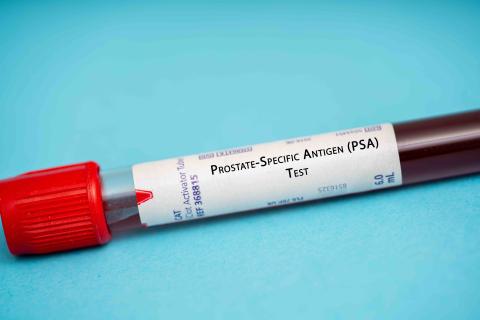Reaction: new tests for colorectal cancer screening by detecting DNA in stool and blood evaluated
Two studies published in the New England Journal of Medicine evaluate colorectal cancer screening tests that could be alternatives to the existing faecal immunochemical test (FIT), which detects occult blood in stool. The first study uses a new generation test that detects DNA in stool and has a higher sensitivity than FIT, 93.9% for colorectal cancer and 90.6% for advanced neoplasia (tumour formation). The second uses a blood-based DNA detection test with a sensitivity of 83% for colorectal cancer and 90% for advanced neoplasia.

Isabel Portillo - nuevas pruebas cribado
Isabel Portillo
Screening Coordinator at Osakidetza -Basque Health Service, researcher in the Cancer Biomarkers group at the Biobizkaia Health Research Institute, and secretary of the Board of Directors of the Spanish Epidemiology Society
These studies are based on a population of people aged 40-80 years, which differs markedly from the medium risk population according to the available evidence (50-74 years) which is currently recommended by the European Union after robust studies (2022).
Comparison with FIT should be analysed cautiously, as there is currently not enough scientific evidence to include another test (except for direct colonoscopy with a participation of around 30% depending on the country).
There is an over-representation of women, who are less likely to develop advanced lesions and cancer. Non-invasive cancers, which are not considered as cancer screening but as advanced lesions, are also included. Including all colorectal cancers and stages is biased; the goal of screening is to detect more than 70% at early stages. Detection rates of advanced lesions, if we start from colonoscopy, are biased. With FIT, screening is performed on a regular basis, which allows detection of lesions over time, as they evolve slowly in 70% of cases.
Research on these new markers has been ongoing for the last 10 years and will undoubtedly provide evidence for the need to introduce risk-based screening. Differences between men and women also need to be studied, as they behave differently both in the detection of advanced lesions and in colorectal cancer as well as in stage.
Limitations due to the choice of age groups and gender need to be taken into account. In the US, all screening tests are not free of charge and therefore not accessible to the whole population, which is not addressed in the article. People with lower socio-economic status do not have access and are most at risk of developing colorectal cancer. On the other hand, according to the studies carried out to date, liquid biopsy and the determination of genetic biomarkers involve a complexity (extraction, conservation, transport, analysis of samples) that makes them too expensive to be included in screening. In other words, further research is needed and possibly in the future it will be incorporated with FIT to improve sensitivity and specificity and to carry out risk-based screening of the population.
In clinical practice, although it requires a lot of complexity, [using these new tests] may compromise the use of resources for population-based programmes that have been shown to be cost-effective. The recommendation is to conduct studies in a stratified population aged 50-74 years and analyse different biomarkers currently on the market or in development, comparing with FIT.
We currently have a project underway at our Biobizkaia Health Research Institute with these objectives. The whole process for the development [of the new tests] is €600 per patient, in order to [surpass] the sensitivity and specificity of FIT and colonoscopy. In comparison, the price of FIT is approximately €2, and while participation is variable in the EU and internationally (including the US), it achieves an uptake of 45-70%, making it - for the time being - the most cost-effective strategy at the population level. The Joint-Action ECICC** project is analysing both age groups and tests to develop a European-wide clinical practice guideline, which will be available by the end of 2024 and includes the incorporation of DNA, RNA and [gene methylation] Sept9 markers.
Therefore, when recommending their use in screening it is necessary to consider:
- Population level, organised, opportunistic (this is the most unequal) [See the European projects CanCon, Cancer Control Joint Action and EPAAC, European Partnership for Action Against Cancer, launched in 2009].
- Sensitivity and specificity for colon-rectal lesions, as they may indicate the possibility of other lesions in other organs, whose follow-up may be uncertain and contribute to undesirable overdiagnosis and overtreatment.
- Variability in biomarkers.
She declares that she has no conflicts of interest.
Note: Isabel Portillo participates as an expert in the European Cancer Inequalities Registry and the European Commission Initiative on Colorectal Cancer (ECICC).
Thomas F. Imperiale et al.
- Research article
- Peer reviewed
Daniel C. Chung et al.
- Research article
- Peer reviewed



